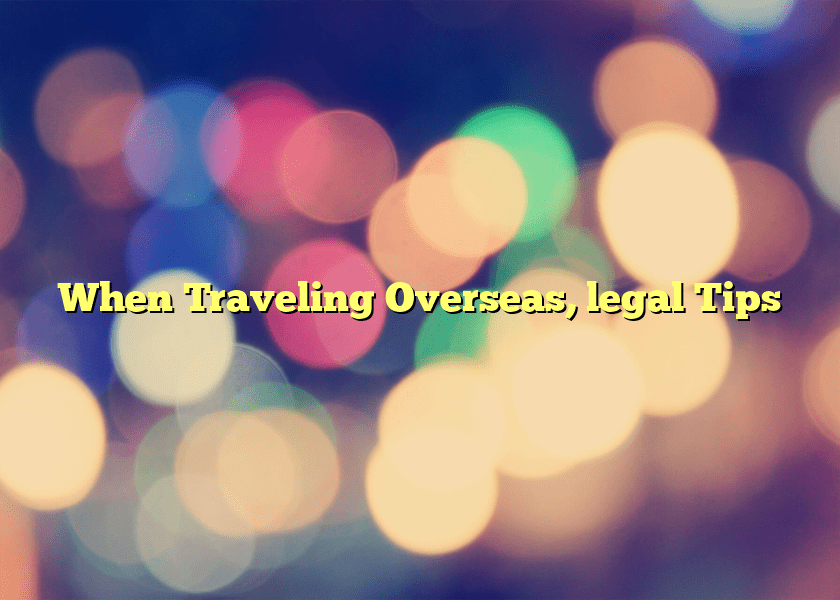When Traveling Overseas, legal Tips
Obey Foreign Laws
When you are in a foreign nation, you are subject to its laws. It assists to find out about regional laws and guidelines and to follow them.
Prior to you think of offering individual results, such as clothes, cams, or precious jewelry, you must learn more about the regional guidelines relating to such sales. Due to the fact that the charges that you run the risk of are extreme, you need to adhere strictly to regional laws.
For details on photography limitations, check with the nation’s traveler workplace or its embassy or consulate in the United States. When abroad, you can examine with regional authorities or with the Consular Section of the closest U.S. embassy or consulate.
Legal Aid
Since you undergo regional laws abroad, there is little that a U.S. consular officer can do for you, if you come across legal troubles. As mentioned formerly, a consular officer can not get you out of prison. What American authorities can do is restricted by both foreign and U.S. laws.
U.S. consular officers can not serve as lawyers nor provide legal recommendations, they can supply a list of regional lawyers and assist you discover sufficient legal representation. The lists of lawyers are thoroughly put together from regional bar association lists and actions to surveys, however neither the Department of State nor U.S. embassies nor consulates abroad can presume duty for the quality, proficiency, or expert stability of the lawyers.
You must ask the authorities to inform a consular officer at the closest U.S. embassy or consulate if you are apprehended. Under worldwide arrangements and practice, you can speak with the U.S. consul. Attempt to have somebody get in touch with the U.S. consular officer for you if you are rejected this right.
When notified, U.S. authorities will visit you, recommend you of your rights according to regional laws, and call your household and buddies, if you want. U.S. consuls can move cash, clothes, and food to the jail authorities from your household or good friends.
When abroad, you can inspect with regional authorities or with the Consular Section of the closest U.S. embassy or consulate.
Since you are subject to regional laws abroad, there is little that a U.S. consular officer can do for you, if you come across legal troubles. What American authorities can do is restricted by both foreign and U.S. laws.
If you are detained, you must ask the authorities to inform a consular officer at the closest U.S. embassy or consulate. When notified, U.S. authorities will visit you, encourage you of your rights according to regional laws, and call your household and buddies, if you want.
